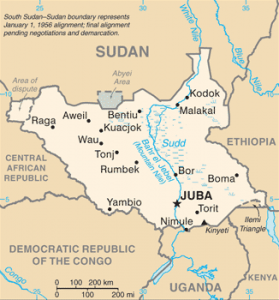A cholera outbreak was declared in South Sudan in June 2016 and resulted in 20,000 suspected cases and 436 deaths through Dec. 2017–the longest and largest cholera outbreak the country has seen.

After not reporting any cholera cases in more than seven weeks, South Sudan declared the end of the outbreak this week.
The fight against cholera in South Sudan has involved a range of partners working together to enhance surveillance, deploy rapid response teams to investigate and respond to cases, provide clean water, promote good hygiene practices and treat cholera patients.
To enhance outbreak response efforts, the government worked with the European Union Humanitarian Aid (ECHO), GAVI, the Vaccine Alliance, the United States Agency for International Development (USAID) and the World Health Organization (WHO), securing 2.2 million doses of the Oral Cholera Vaccine (OCV) from the Gavi-funded global stockpile.
In 2017 more than 885,000 people at higher risk of cholera were immunized in the first round and nearly 500,000 people also received a second round of the vaccine. Due to security challenges, not everyone was able to receive the recommended two doses, which would significantly decrease their risk of being affected by cholera.
“Cholera is a virulent disease which spreads when hygiene and sanitation are inadequate,” said Evans Liyosi, WHO Acting Representative to South Sudan. “I congratulate South Sudan for resolving to tackle cholera with determination. But cholera is endemic to South Sudan and many risk factors remain. It is important to maintain the ability to detect and respond to new cases.”

